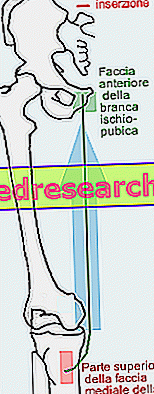By Dr. Maurizio Capezzuto - www.psicologodiroma.com -
The interest in Anxiety and Panic Disorders has increased considerably in recent years, as these seem to be the main reasons for specialist consultation in the field of psychological problems.
But what is an anxiety disorder? Like all emotions, even anxiety is not dysfunctional in itself but, on the contrary, it is indispensable for survival, as it signals the subjective perception of an imminent threat to important objectives that we want to pursue or for our physical safety.

Most individuals with anxiety problems complain of a large list of sensations and disorders such as: palpitations, tachycardia, excessive sweating, feeling of suffocation, chest pain or discomfort, feelings of skidding and / or fainting.
When the state of anxiety is particularly intense and prolonged over time it can cause, as you can imagine, an almost total compromise of the life of relationship and autonomy.
Anxiety is commonly referred to as a fear without an object. More specifically we could say that, in anxiety disorder, the object of fear exists, even if it is often undefined and elusive on the part of the subject. The anxious person experiences a painful feeling of apprehension about events of which he almost always makes pessimistic predictions. This only partially serves to explain the distressing experience that the person feels. Even more painful is the perception, not only of an imminent catastrophe, but also the idea of having to do something to prevent this catastrophe. In this state the person experiences a whirlwind of emotions, which he often does not even know how to define, on the one hand, where anxiety about the feared event is present, anxiety that is strengthened by the belief that he is unable to face such catastrophe and that can be mixed with sadness for the perception of inadequacy and incapacity of the Self. The person therefore finds himself experiencing a feeling of danger arising from an altered perception of the external world that is added to the emotion of sadness due to the impotence generated by the perception of fragility he has of himself. Because of this deficiency, she will be forced to need others. Therefore, in addition to experiencing the unpleasant state caused by anxiety, the person may also find himself living in a state that worsens his condition, that of sadness to be as he is. This would also explain the tendency of the anxious person to keep everything under control. Precisely because it perceives itself as inadequate (with little potential) and perceives the external world as increasingly threatening, it cannot lose control because it is as if it were said: "To what disastrous consequences will I be exposed if I should lose some of my control? ".
Moreover, the anxious person is inclined to remember only his failures and forget his successes. She often does not question the idea that it is precisely her tendency to control that increases the state of malaise (which she instead attributes to the gravity of the event) and that often the negative events that life presents to us are not at all the consequence of our being inadequate. Furthermore, wanting to control at all costs only gives us proof that we are not able to control and this triggers a vicious circle: since I am weak I have to control, the more I am vigilant and careful in controlling everything that surrounds me and the more I notice that I cannot control everything, the information I receive from the failed control, reinforces my basic idea, that of being weak / inadequate. The person suffering from anxiety disorder has a difficulty in processing information. In the person suffering from anxiety disorder, as already mentioned, there is a tendency to overestimate the danger and underestimate its ability to cope with it. These perceptions activate the so-called "danger patterns". Once the hazard assessment is activated, another vicious circle is created that reinforces the manifestations of anxiety. Indeed, anxious symptoms are themselves a source of threat. They can affect the behavior of the individual and be interpreted as signals of the existence of a serious physical or psychological disorder. These effects increase the individual's sense of vulnerability and consequently reinforce the initial anxious reaction by inducing a series of unfavorable responses, which in turn do nothing but exacerbate the danger assessment. In the person who suffers from generalized anxiety, there is a chronic rumination mode, beliefs about their inability to cope with the event and positive and negative thoughts related to the rumination process itself.



